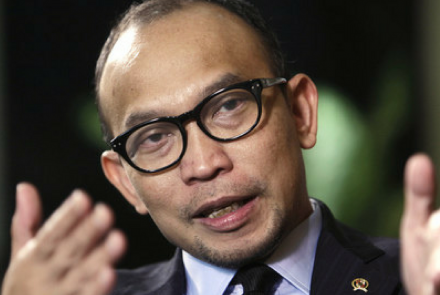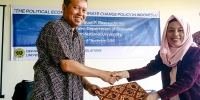
Dr Chatib Basri
How ASEAN economies can succeed
In a period of slow global growth and rising protectionist sentiment, are the now robust economies of ASEAN destined to lose their shine? Not according to Indonesia’s former Minister of Finance, who spoke recently at the Arndt-Corden Department of Economics.
In a presentation titled “What can ASEAN do in the midst of the ‘New Normal’?”, Dr Basri argued that there are options available to ASEAN nations to pursue deeper levels of economic integration and lift people out of poverty – despite the present unfavourable climate for trade liberalisation.
Serving as Indonesian Finance Minister from May 2013 to October 2014, Dr Chatib Basri is one of Indonesia’s leading economists and policymakers. He is also a Distinguished Visiting Fellow at the Indonesia Project.
According to Dr Basri, ASEAN nations have to find ways to respond to the ‘new normal’ of shrinking global trade, the withdrawal of the United States from the Trans-Pacific Partnership, and anti-globalisation sentiment.
“Even before Trump, global trade was slowing down. However if Trump were to introduce a protectionist policy on goods, for example, then there would be implications for Southeast Asian countries,” Basri said.
“This is the problem that the ASEAN countries have to face. Slower economic growth will have an impact on job creation and poverty rates.”
So what can be done?
Dr Basri said that in order for countries to overcome protectionism, economists must start by working within what is politically feasible. This means understanding that politicians often focus by necessity on the short-term.
“Jean-Claude Juncker, the President of the European Union, said that all of us know very well what we should do in terms of reform, we just don’t know how to be re-elected after we’ve done it.”
In the case of economic reform for ASEAN nations, Dr Basri says that what is needed is a success story highlighting how globalisation can have a positive impact on people’s lives.
“The idea is you create a success story, you capitalise on it, and then you start to gain the political support. Once you gain the political support, then politicians will see the incentive to go with this kind of policy. Then, you can go to the more complex reform.”
For Dr Basri, there is one area of policy which has particular potential to be a success story for regional economic integration.
“In my view, it’s connectivity, because all the ASEAN countries definitely need connectivity or infrastructure. I don’t see any ASEAN countries who will reject the idea of having this connectivity.”
And with the Regional Comprehensive Economic Partnership (RCEP), Southeast Asian nations potentially already have a promising platform through which to pursue this agenda. RCEP also compares favourably with the now-failed TPP, Dr Basri says.
“If we’re talking about the size of trade, it’s more or less comparable. If we’re talking about the impact to the population, RCEP is even more impactful. And the good thing about RCEP is it’s open to regionalism. If, later on, the United States decides to join, it’s open to do so.”
You can find Dr Chatib Basri’s full speech here.
Updated: 28 July 2024/Responsible Officer: Crawford Engagement/Page Contact: CAP Web Team












